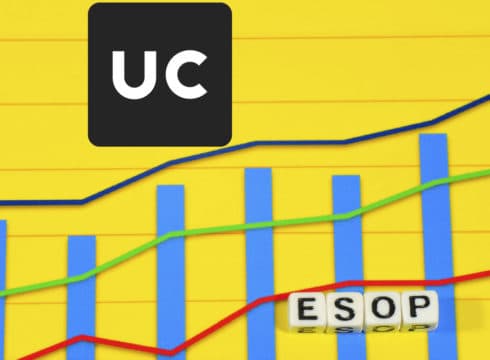100 employees eligible to sell their shares in the sale
Each share valued at $871 for this ESOP round
The buyout will take place via a secondary transaction, part of $54 Mn Series D round
Inc42 Daily Brief
Stay Ahead With Daily News & Analysis on India’s Tech & Startup Economy
On-demand home services platform UrbanClap is facilitating an employee stock repurchase programme (ESOP) worth $2 Mn-$2.5 Mn (INR 14 Cr-INR 18 Cr) at $871 (INR 62K) per share. Reportedly, around 50 of the 100 eligible employees have exercised the option to sell their shares.
The ESOPs purchase will take place via a secondary transaction, and is said to be the part of recent $54 Mn Series D funding round led by hedge fund Steadview Capital and existing investor Vy Capital in November 2018. At the time of fundraise, the company announced that it would facilitate a secondary sale of ESOP and stocks worth approximately $4 Mn (INR 28.4 Cr).
This is UrbanClap’s second ESOP cashout. The company had organised a secondary sale at the time of its Series C round of funding in June 2017 as well. During the first ESOP sale, UrbanClap’s shares were valued at $337 (INR 24K) per share, implying a more than two-fold jump in the current year.
UrbanClap: An Overview
Founded in 2014 by Abhiraj Bhal, Raghav Chandra, and Varun Khaitan, UrbanClap offers services such as beauty and massage, appliance repair, plumbing, carpentry, cleaning, and painting. The company claims that its operating model focuses on service professionals with the aim of turning them into micro-entrepreneurs, multiplying their earnings by 2-3 times.
With operations in eight cities – Ahmedabad, Bengaluru, Chennai, Delhi-NCR, Hyderabad, Kolkata, Mumbai, and Pune – UrbanClap now claims to have served 3 Mn customers with its 100K verified experts as of July 2017. For the financial year 2018, UrbanClap reported a revenue of $7.27 Mn (INR 53.37 Cr), a 225% jump from FY17.
Startups Joining ESOP Bandwagon
In the past few years, we have seen several startups coming out with the ESOP plans for their employees. Some of them are:
- 140 Razorpay employees cashed in their ESOPs with Tiger Global (November 2018)
- Temasek Holdings bought shares worth $30 Mn (INR 213.5 Cr) from former and early employees of the cab-hailing company Ola as part of a secondary share sale
- Walmart is obligated to purchase 6,242,271 shares from Flipkart’s ESOP pool of 11,947,026 shares worth nearly $800 Mn (INR 5,694 Cr)
- Nearly 30 ex-employees of Gurugram-based logistics Unicorn Rivigo had encashed on their stock options in the company, reaping in an estimated amount of $10 Mn (INR 71.1 Cr)
- Unicorn food delivery company Swiggy approved its first employee stock repurchase programme. The share buyback, which had to be implemented in June, was estimated at over $4 Mn (INR 27 Cr)
- BlackBuck announced ESOP repurchase plan with an option to avail 11X returns within one year (October 2017)
- Flipkart board approved a $100 Mn (INR 711.7 Cr) ESOP repurchase plan (October 2017)
ESOPs have become the new way of rewarding employees in the Indian startup space. As UrbanClap suggested in a January 2018 media statement,
“In order to ‘attract senior-level employees’ and to conserve the immediate cash requirements for remunerating them, the board has sought approval from shareholders to give authority to the ESOP committee of the board to “grant options exceeding 1% of the issued capital of the company to identified employees.”
This indicates that startups are using ESOPs as a tool to not only retain talent but to maintain the cash liquidity as well in the near term. On the other hand, it becomes a kind of ‘lottery’ option for the employees, which they can encash at the right time. There are risks attached to it as well. An employee may enter the company when it is doing well but fails to maintain its stock value later.
But as the analysts say, in the ideal case, if a startup is flourishing – and employees can exercise their stock options to cheaply buy the company’s stock and sell it at a significant gain. Contrary to ordinary stock that might drop far below their original price and cause significant financial loss, the worst-case scenario with stock options is zero gains, but also no loss.
[The development was reported by ET.]
{{#name}}{{name}}{{/name}}{{^name}}-{{/name}}
{{#description}}{{description}}...{{/description}}{{^description}}-{{/description}}
Note: We at Inc42 take our ethics very seriously. More information about it can be found here.


